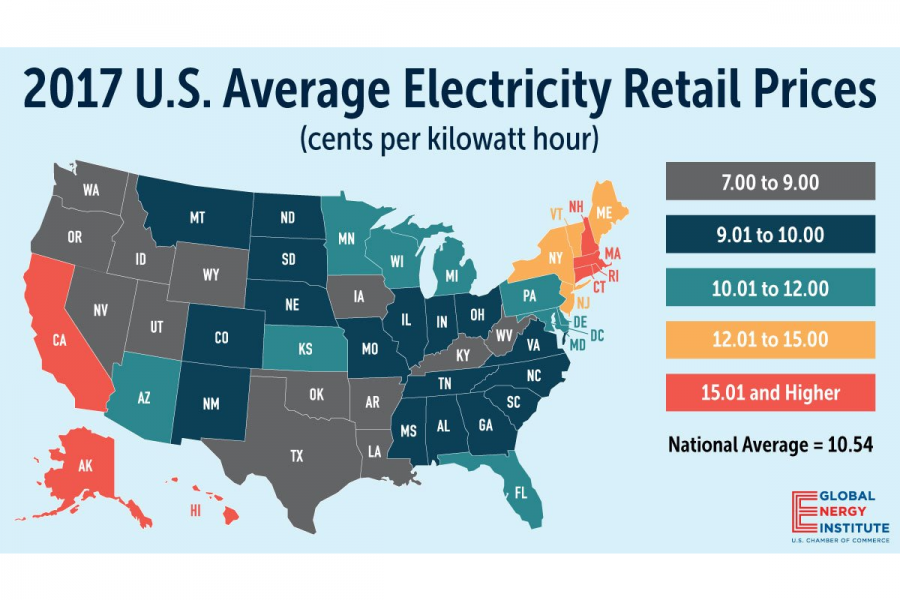Is Solar Right for my Home?
Discover how much you can save today with our solar calculator
If you are debating is solar right for my home, you may be wondering if you have to live in a sunny, warm climate in order to see significant savings with solar power. We are here to give an insight into how long can a solar panel last and are the lifetime savings really worth the cost?
As it turns out, solar is a smart investment whether you’re soaking up the sun in California or paying through the nose for electricity in the Northeast. Certainly, there are many pros and cons of solar energy and things to consider.
Things to Consider If You are Exploring Your Solar Options
- Available incentives and rebates
- Direction your roof faces and angle of roof
- Age of your roof
- Obstructions or shading on your roof
- Current cost of electricity
Characteristics of an Ideal Home for Solar
While solar works for almost all homes, the “best of the best” homes for solar panel installations have the following roof characteristics:
- South or west-facing roof
- Roof angle of 30 degrees
- No obstructions on roof surface, such as chimneys or skylights.
- No buildings or trees casting shadows onto your roof
- Relatively new roof
While the above qualities would fit an ideal solar home, you can still benefit heavily from a solar installation even if you can’t check off everything on the list. The following factors are important to consider when assessing whether your roof is appropriate for solar.
If you are exploring solar options learn whether Is Better to Lease or Buy Solar Panels?
Incentives and Rebates
There are a variety of incentives and rebates offered for homeowners switching to solar power. These are available at the federal, state and local levels, but availability varies depending on your region. Incentives and rebates can reward residents with significant cost savings to help with solar project financing, but the steadily falling cost of solar has made these incentives less important in recent years.
Orientation and Age of Roof
A home with a south-facing roof is ideal. However, due to how the home solar power system works, you can still generate sufficient energy with a roof that faces to the east or west.A pitch of 30 degrees is also ideal, however solar can be installed on roofs with angles from 0 to 45 degrees. Do you have a flat roof? That’s ok too! Your installer can mount the panels at the perfect angle to maximize your energy production. As for the age of your roof, it doesn’t have to be brand new, however you shouldn’t be planning on replacing it within the next few years. As a general guide, if your roof needs to be replaced within the next 5 years, it would be best to have your roof replaced before having your panels added.
Size of Roof and Obstructions
It’s best if your roof is free from obstructions like chimneys, skylights, and dormers. If these are present on your roof, the installer may be able to design the system around them, depending on the roof layout and size.
You’ll also need to consider how many solar panels to run a house. A general rule of thumb for a solar PV system is to reserve 100 square feet of roof space for each kilowatt. The average system in the United States is between five and seven kilowatts, though your system may be bigger or smaller depending on your electricity consumption. You should also consider the relative efficiency of polycrystalline vs monocrystalline solar system when you’re calculating your needs.
Shading on Roof
Shadows cast on solar panels from trees or neighboring buildings can significantly decrease their electricity production. While a building’s shadow may not be something you can change, tree branches can be trimmed to decrease their effect on your panel’s production. If there’s simply no way to eliminate shading on your rooftop, another option may be solar panel ground mounting systems.
Electricity Rates in Your Area
The price of electricity in your area is a key factor in the decision to go solar. Installing solar panels makes sense almost everywhere, but the savings you receive will vary, due in large part to the price you are paying your utility for your energy. In fact, because of the variations in energy prices, in some of the cloudier areas of the US, solar homeowners are seeing greater savings than homeowners in sunnier regions, who have lower utility prices.

Ready to See How Much You Can Save with Solar?
So, what are the benefits of solar energy and how do they compare to the costs? You can find out by getting competitive solar quotes from qualified, trusted installers in your area.
To see an estimate for how much you could expect to save and how much a solar system would cost, try our solar calculator.

